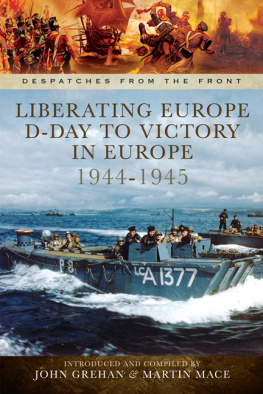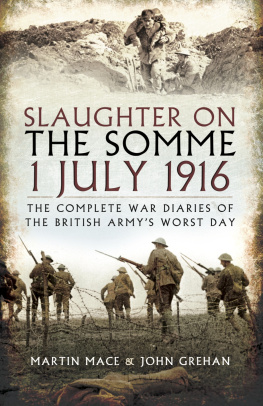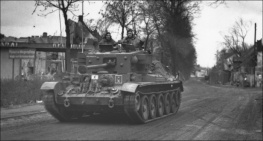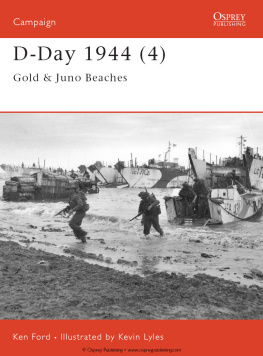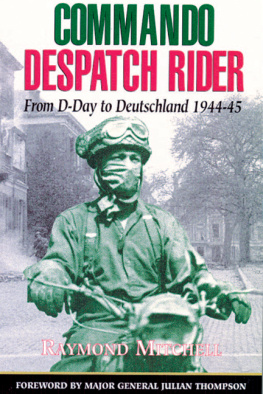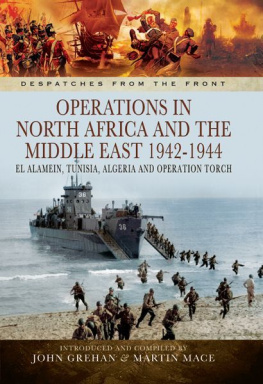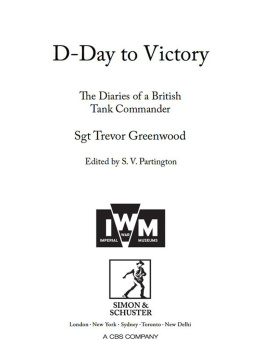
First published in Great Britain in 2014 by
Pen & Sword Military
an imprint of
Pen & Sword Books Ltd
47 Church Street
Barnsley
South Yorkshire
S70 2AS
Copyright Martin Mace and John Grehan, 2014
ISBN 978 1 78346 215 5
eISBN 9781473838277
The right of Martin Mace and John Grehan to be identified as Authors of this Work has been asserted by them in accordance with the Copyright, Designs and Patents Act 1988.
A CIP catalogue record for this book is available from the British Library. All rights reserved. No part of this book may be reproduced or transmitted in any form or by any means, electronic or mechanical including photocopying, recording or by any information storage and retrieval system, without permission from the Publisher in writing.
Printed and bound in England
By CPI Group (UK) Ltd, Croydon, CR0 4YY
Pen & Sword Books Ltd incorporates the Imprints of Pen & Sword Aviation, Pen & Sword Family History, Pen & Sword Maritime, Pen & Sword Military, Pen & Sword Discovery, Pen & Sword Politics, Pen & Sword Atlas, Pen & Sword Archaeology, Wharncliffe Local History, Wharncliffe True Crime, Wharncliffe Transport, Pen & Sword Select, Pen & Sword Military Classics, Leo Cooper, The Praetorian Press, Claymore Press, Remember When, Seaforth Publishing and Frontline Publishing.
For a complete list of Pen & Sword titles please contact:
PEN & SWORD BOOKS LIMITED
47 Church Street, Barnsley, South Yorkshire, S70 2AS, England
E-mail: enquiries@pen-and-sword.co.uk
Website: www.pen-and-sword.co.uk
C ONTENTS
The Despatches
I NTRODUCTION
The operation which was launched in the first week of June 1944, and led to the liberation of France and then Occupied Europe, was a success, even though it proved to be a far harder task than had been expected. It is frequently said that this success was in part due to the combined operation against Dieppe in 1942 where many lessons were learnt. Consequently an account of this raid, Operation Jubilee , forms the first despatch in this volume.
The despatch supplied by the Naval Force Commander, Captain J. Hughes-Hallett, whilst admitting to a number of mistakes (in what was in reality a disaster), claims that the operation, which achieved nothing was well worth while provided its lessons are carefully applied when the time comes to re-enter France on a large scale. To regard the losses incurred in the raid more than 3,000 killed, wounded or taken prisoner as being worth while one would think that these lessons were truly revelatory. Yet what we learn from Hughes-Hallett is that very strong forces were needed to break through prepared defences and that a high proportion of troops should be held in reserve until it is known where to use them to exploit success. These are two of the most basic and fundamental aspects of military operations. To suggest that Britains military commanders were unaware of these factors defies belief.
Nevertheless, when Operation Overlord was launched two years later, and whether Dieppe had taught the Allied leaders anything or not, it was with forces powerful enough to overcome the German defences. The second despatch in this volume, therefore, concerns the assault phase of the Normandy landings, Operation Neptune , and this is also supplied by a naval officer, in this case Admiral Sir Bertram Ramsay.
Operation Neptune was indeed a colossal enterprise, requiring, as Ramsay explains, the co-ordination of the movement of thousands of ships and landing craft and aircraft and then of their fire power, the second the co-ordination of the activities of hundreds of thousands of men and women of all services, both in the United Kingdom and off the French coast, marshalling, loading, sailing, unloading and returning at least eight ship convoys a day in addition to ten or twelve landing craft groups.
It is interesting to note that though we view the transporting of some 150,000 Allied troops across the Channel in, or protected by, more than 5,000 vessels, whilst achieving almost complete surprise, as being the result of a high degree of careful planning and co-ordination, it is evident that Ramsay must have experienced a degree of difficulty dealing with the American Navy. In his despatch he states: I am aware that the U.S. naval authorities had to exercise considerable restraint in submitting to a degree of control by superior authority on a level higher than that to which they were accustomed. In their reports the U.S. naval commanders have commented that in their view my orders extended to too much detail.
These are strong words. The Americans clearly did not like being told what to do by a British commander and considerable restraint had to be exercised.
Ramsay also reveals that there was disagreement amongst the force commanders. He states that after much discussion it was decided that the landings should take place in daylight. Even though this was agreed upon, at least two vain efforts were made to change it.
The third despatch in this compilation was written by Air Chief Marshal Sir Sholto Douglas in his capacity as Air Officer Commanding-in-chief, Coastal Command. His main task during Operation Neptune was to protect the ships and smaller craft from German submarines. It had been noticed from March 1944 that the Germans had been withdrawing their U-boats from their bases around the Bay of Biscay in order to concentrate them in the Channel in anticipation of the expected invasion.
To counter this, Douglas aimed to flood an area of sufficient depth to kill or keep submarines submerged from the Western limits of the St. Georges and Bristol Channels and the English Channel up to a point as near as possible to the route of our cross-channel convoys. Douglas called this his the cork in the bottle policy, meaning that he intended to use his aircraft as the cork which would keep the U-boats bottled-up beyond the invasion zone. Douglas also had responsibility for helping to provide aerial protection for the cross-Channel convoys and for this he was given eight Fleet Air Arm squadrons.
Air Chief Marshal Sir Trafford Leigh-Mallory provides the despatch concerning the main aerial support for the Normandy operations. In this respect, the air operations began as early as November 1943 with the objective of reaching a situation whereby the German air force was rendered incapable of effective interference with Operation Overlord . The second main objective was the disruption of the enemys communications and channels of reinforcement and supply. Leigh-Mallory details how this was to be achieved in the preparatory bombing plan, which was designed to completely dislocate the railway network across northern France and the Low Countries.
Attacks were also to be delivered against coastal batteries, enemy naval and military targets and the enemys Radar installations. It was necessary, Leigh-Mallory reminds us, that if all these attacks were delivered against the intended landing area this would be a fairly obvious indication where the assault was likely to take place. As a consequence at least two attacks were made on each type of target outside of the projected assault area to just one attack on a target within that area.
Other tasks allotted to Leigh-Mallory were:
1. To provide continuous reconnaissance of the enemys dispositions and movements.
2. To support the landing and subsequent advances of the Allied armies.
3. To deliver offensive strikes against enemy naval forces.

